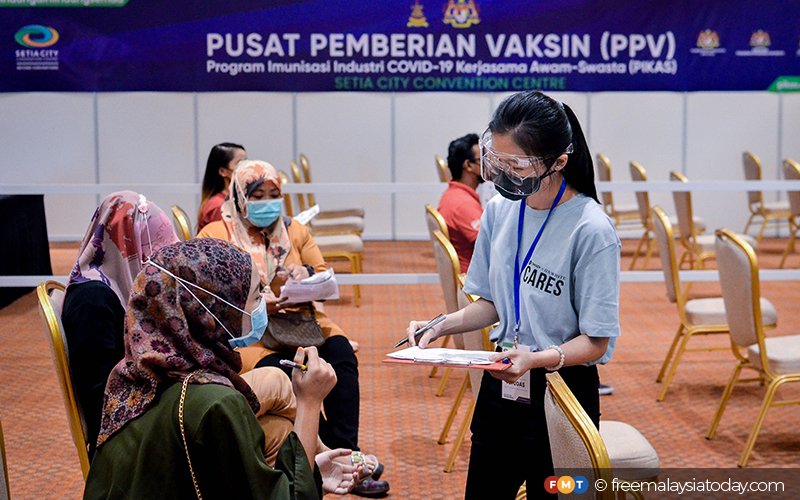PETALING JAYA: Providing cash prizes through lucky draws may be one way to get more people to sign up for Covid-19 shots, a local study shows. Conducted by the Asean Research Center at the Asia School of Business, the survey was done among 1,307 adults across the country. It indicated that 80% of the respondents who had yet to register for the vaccine would do so if there was a chance to win a cash prize.
Another experiment with the respondents showed that the punishment of forcing people to pay for PCR Covid-19 tests every two weeks was more effective at promoting vaccinations compared to the incentive of being enrolled in a lucky draw offering a large cash prize of RM1 million.
The researchers said that although the study was not representative of the entire population, it suggested that providing the chance for people to win cash prizes through a lucky draw was an effective way of increasing the inoculation rates. Citing health ministry data, the researchers said that when the easing of travel restrictions for the fully vaccinated was announced last month, registration rates increased by 10% as of today.
This indicated that offering carrots works although “the stick could be even more effective”, they said. Among the incentives offered to the fully vaccinated include allowances to dine-in and a lifting of the 10km radius for inter-district travel.
Noting that cases are still at a record high following the emergence of the Delta variant, the researchers said that in order for Malaysia to move to Phase 4 of the national recovery plan and arrest the surge in cases by the end of the year, the individual states could resort to a more demanding approach to ramp up their vaccination take-up rate.
“It is important to note that we are still not sure whether cash incentives can still work with those who are extremely anti-vaccine,” said Melati Nungsari, from the Asean Research Center. “We also did not focus on increasing access to vaccines for vulnerable groups such as undocumented persons. However, these are empirical questions which we may be able to answer in the future.
“Based on this study, we hope to be able to work closely with policymakers to help design, implement and measure interventions to help increase the vaccination take-up rate in this country,” said Melati.
Read the full article here.
This article was originally published on FMT Malaysia Prihatin





